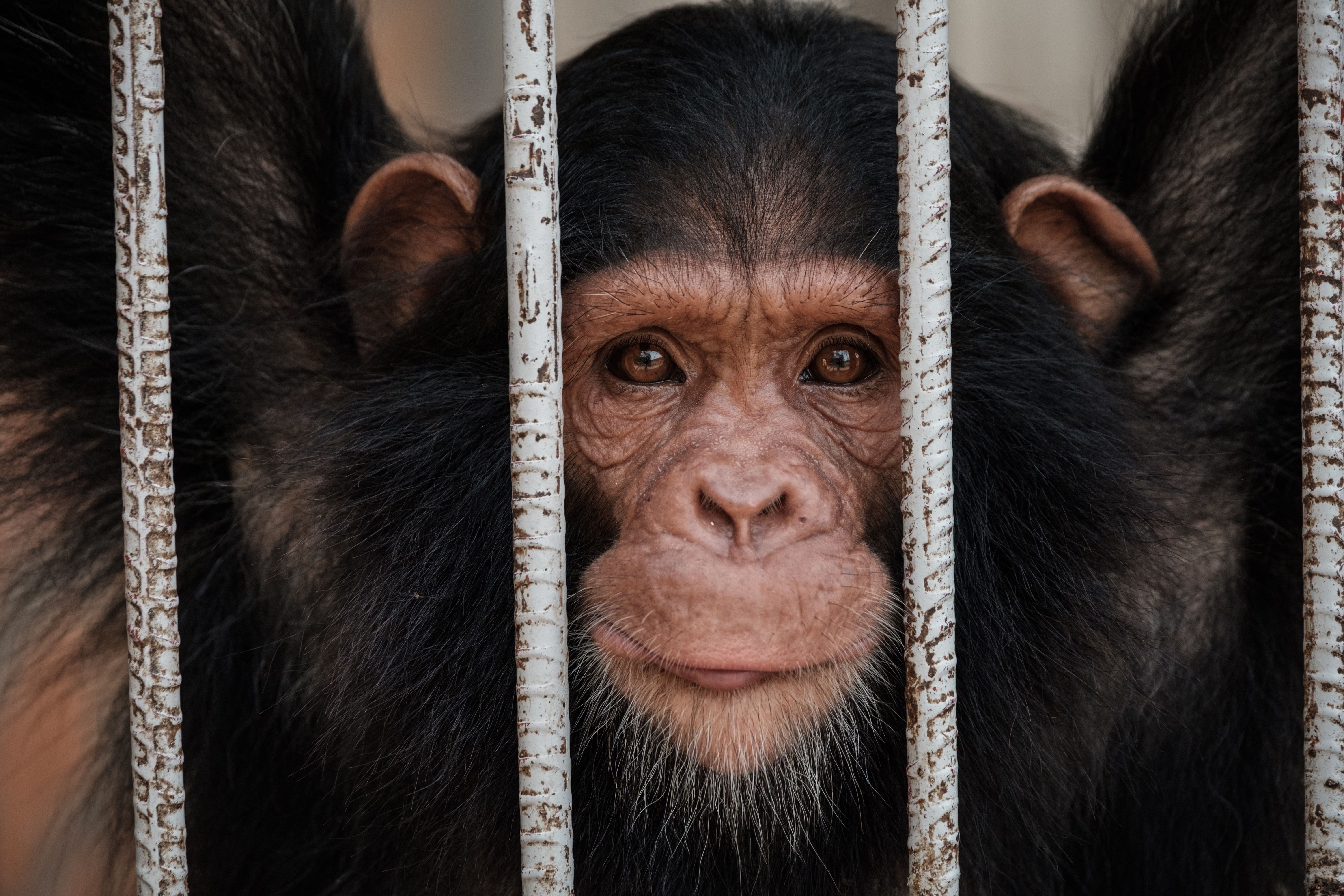Zoo-dwelling primates became more solitary and sedentary over lockdown, study finds
Some animals were seen to be more inclined to display sexually and physically dominant behaviour

Some zoo-dwelling primates retreated to leading more solitary and sedentary lives over the series of successive lockdowns, new research has revealed.
The study, which compared the habits of bonobos, chimpanzees, baboons and gorillas in a zoo and safari park in 2020, also showed that many others were inclined to perform more sexually and physically dominant behaviour.
Published in the journal Animals, it compared the differences in the zoo animals’ ways of being during the pandemic, when they had minimal contact with humans, and after it, when the visitors returned.
The researchers found that olive baboons displayed less sexual and dominant behaviour when visitor numbers were restored post-lockdown than they had while the country was living under strict social distancing rules.
It was also observed that the species would approach cars more frequently than they had the ranger’s vehicle when the park was closed.
And in a sign that the primates’ socialable nature was being restored after lockdown, the study also found that when visitors returned bonobos and gorillas spent less time alone and gorillas spent less time resting.
Indeed, the chimpanzees were seen to start eating and engaging more with their enclosures when the zoo reopened its gates.
Although it is difficult to deduce whether lockdown was a positive, negative or neutral experience for animals, the return of visitors to zoos appears to have been somewhat restorative for chimpanzees and baboons, the researchers said.
They also regarded the bonobos and gorillas spending less time as being a positive outcome.
However, the researchers fear that the reduction in resting behaviour in more sedentary gorillas could hint they they have been disrupted by visitors.
The study suggests that the gorillas altered the use of their enclosure, which suggested they were able to modify their behaviour to reduce potential overstimulation and manage their own experiences effectively.
While the olive baboons may have been stimulated by visitors and the presence of cars, there was a threshold after which this did not increase.
The researchers also believe that their increased sexual behaviour during closure may have been because they did not have the stimulation of the presence of moving vehicles.
Dr Samantha Ward, a zoo animal welfare scientist at Nottingham Trent University’s School of Animal, Rural and Environmental Sciences, said: “Primates are some of the most cognitively advanced species in zoos and their interactions with visitors are complex.
“A limitation to understanding how visitors can affect behaviour of animals in zoos and parks is that they are rarely close to the public for prolonged periods, so this provided us with a unique opportunity.”
Subscribe to Independent Premium to bookmark this article
Want to bookmark your favourite articles and stories to read or reference later? Start your Independent Premium subscription today.

Join our commenting forum
Join thought-provoking conversations, follow other Independent readers and see their replies